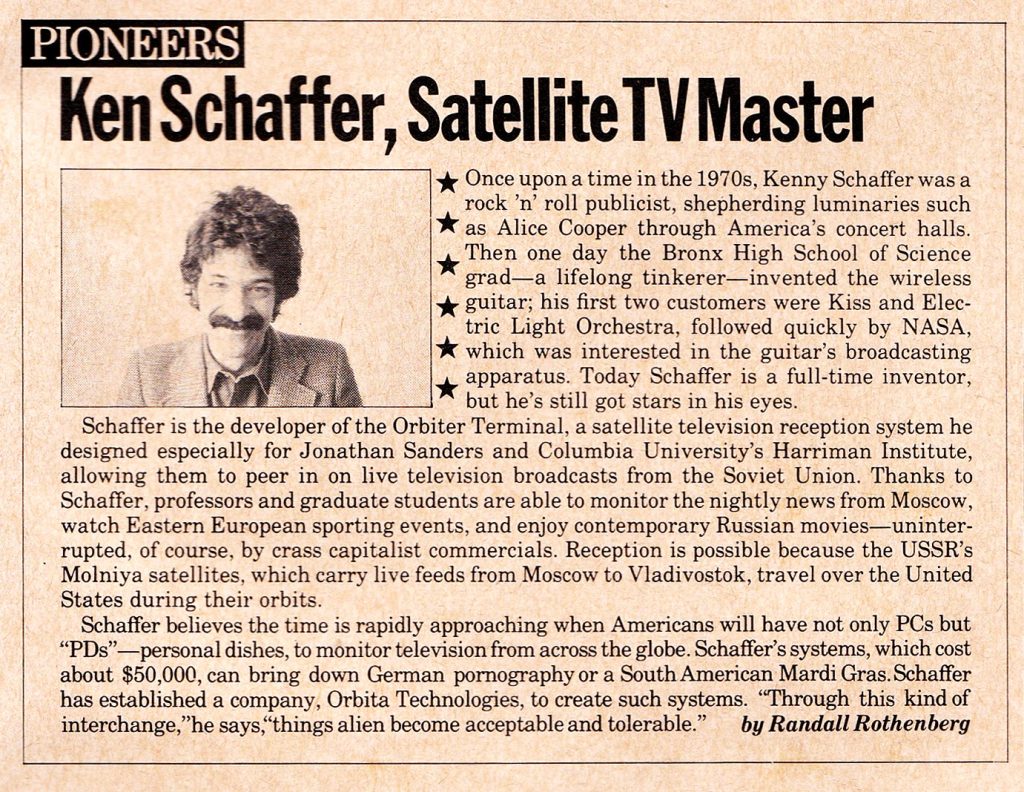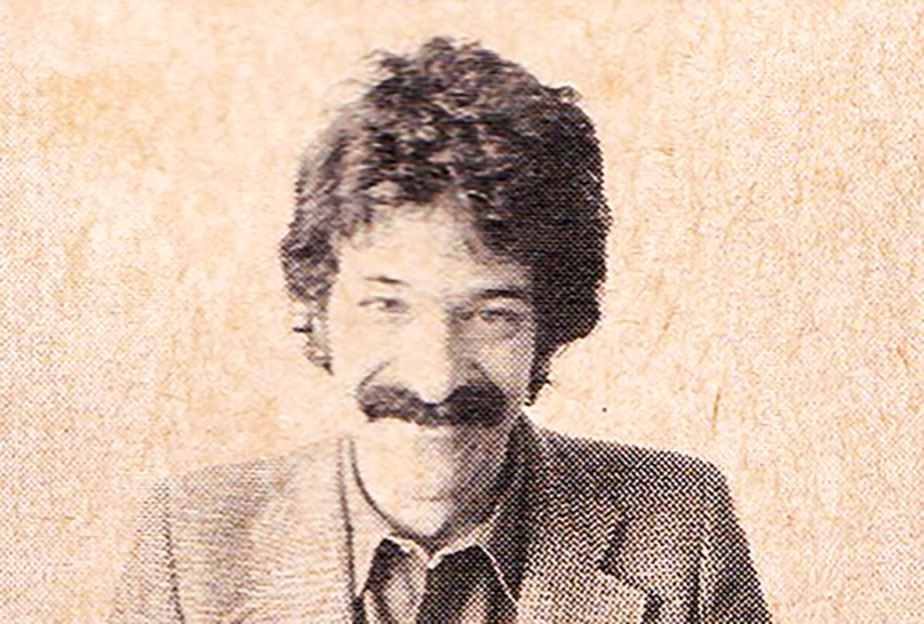Once upon a time in the 1970’s, Kenny Schaffer was a rock n’ roll publicist, shepherding luminaries such as Alice Cooper through America’s concert halls.
Then one day the Bronx High School of Science grad — a lifelong tinkerer — invented the wireless guitar; his first two customers were Kiss and the Electric Light Orchestra, followed quickly by NASA, which was interested in the guitar’s broadcasting apparatus. Today Schaffer is a full-time inventor, but he’s still got stars in his eyes.

Schaffer is the developer of the Orbita Terminal, a satellite television reception system he designed especially for Jonathan Sanders and Columbia University’s Harriman Institute, allowing them to peer into on live television broadcasts of the Soviet Union. Thanks to Schaffer, professors and graduate students are able to monitor the news from Moscow, watch Eastern European sporting events, and enjoy contemporary Russian movies — uninterrupted, of course, by crass capitalist commercials. Reception is possible because the USSR’s Molniya satellites, which carry live feeds from Moscow to Vladivostok, travel over the United States during their orbits.

PhotoSchaffer believes the time is approaching when Americans will have not only PCs but PDs — personal dishes, to monitor television from across the globe. Schaffer’s systems, which cost about $50,000, can bring down German pornography or a South American Mardis Gras. Schaffer has established a company, Orbita Technologies, to create such systems. “When distance becomes transparent,” he says, “things that start out as being just plain alien become more familiar & maybe more tolerable.”
By Randall Rothenberg
